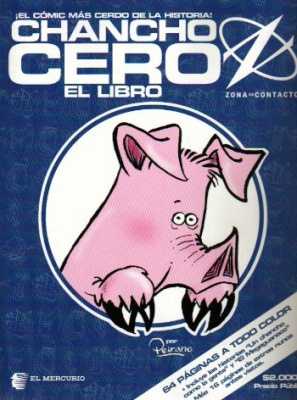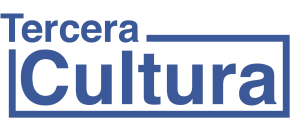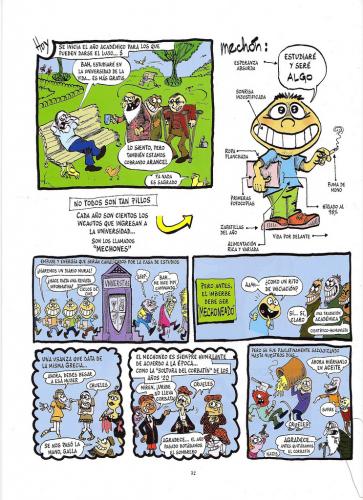[youtube=http://www.youtube.com/watch?v=JJUPQR–3C8]
Octavo episodio de la temporada de verano, y segundo del mini-especial sobre Educación, en Tercera Cultura! Invitamos a Soledad Aravena para conversar sobre Educación Superior en este episodio, titulado “APLAPLAC”

Las competencias necesarias para sobrevivir el brutal impacto del primer año en la Universidad, los distintos estilos de enseñanza y aprendizaje, la lecto-escritura, la deserción en el primer año, los cambios en los planes y programas de las carreras, los “otros aprendizajes”, los alumnos y los profes ideales, la “Revolución de los Mechones“, los “profesores taxi“, la designación del Ministro Milhouse y el porqué Coco Legrand es nuestro ídolo… todo al ritmo de Los Auténticos Decadentes y The Ramones.
Escucha el episodio aquí:
http://www.podcaster.cl/2010/02/tercera-cultura-18/
Puedes dejar aquí tus comentarios o preguntas… NO te olvides de VOTAR (en las estrellitas amarillas arriba), dejarnos tus comentarios, invitar a tus amigos escuchar el programa en la página del evento de Facebook.
[youtube=http://www.youtube.com/watch?v=0vtRErKEER0]

La ilustración de esta semana está sacada de esta pagina del cómic “Chancho Cero”, del gran Pedro Peirano:
El chiste de Les Luthiers que menciona Ricardo se puede escuchar aquí, entre los 3:55 y los 5:00
[youtube=http://www.youtube.com/watch?v=H1ERVhD1oLE]
“Actualidad latinoamericana. El presidente de la hermana República de Feudalia, mariscal Manuel Anzábal, toma el juramento de práctica a nuevos ministros, en una ceremonia que se lleva a cabo en el circo estatal capitalino. Juran los nuevos ministros. De salud pública, general Roberto Freggioni. De agricultura, contraalmirante Esteban Rómulo Capdeville. De vías navegables, brigadier Jorge McLennon. Y de educación y cultura, cabo 1º Anastasio López“.
Links:
– “Estudio sobre causas de la deserción univeritaria”, Informe Final del Centro de Microdatos.
– Artículo de J. J. Brunner titulado “Joaquín Lavín y los desafíos del cambio educacional”
– Mercados universitarios: el nuevo escenario de la educación superior, libro de J. J. Brunner y Daniel Uribe.
– El sistema lancasteriano de educacion en la Wikipedia.
– El “Facebook de la PSU”: http://www.puntajenacional.cl
– El libro “The Hidden Curriculum“, sobre las “biblias” de los estudiantes del MIT
– Artículo de Kevin McCarron, profesor de Literatura y Comediante profesional, llamado “Stand-Up or Fall Down! Pedagogic Innovation, the Comedy Club and the Seminar Room”
This paper will firstly outline a number of strategies I have learned over the past decade performing stand-up comedy throughout the United Kingdom, while also working as a lecturer in Literature in an English University. I will then demonstrate how these strategies can effectively be used for teaching, particularly in the seminar room. Although many teachers in HE think of themselves as ‘performers’, they are invariably vague as to what kind of performer they are. Actually, the one branch of performance they are connected to most closely is stand-up comedy, irrespective of the ‘comedy’ in their classes, because only the teacher and the stand-up comedian rely on the continuous interaction between themselves and the people in front of them. The difference between teachers and comedians, on the one hand, and all other performers, on the other, is that the former require the people in front of them also to ‘perform’. Many comedians are clearly motivated by a desire to communicate, they obviously set out to teach their audiences ‘something’; reciprocally, then, teachers can use comedians’ techniques with their students.
The quality most highly valued in stand-up comedy is not the ability to memorise a ‘set’, no matter how full of memorable jokes; on the contrary, it is the ability to respond spontaneously and flexibly to any situation, comment or indeed audience. This paper will argue that all too often teachers, particularly in the Humanities, are far too well ‘prepared’ for seminars, which limits the opportunity for students to interact. Excessive preparation for seminars is often a form of control over students, or is done not to ‘teach’ the students but rather to protect the teacher. I argue for the desirability of learning from stand-up comedians, abandoning any form of lesson plan, and cultivating flexibility and spontaneity in seminars.
This paper will challenge several assumptions central to contemporary teaching in Higher Education, particularly the desirability of smaller classes and the importance of learning students’ names. In addition, many other issues will be raised, including mixed-ability teaching, ‘heckling’, learning outcomes, fee-paying students, the role of capitalism in the ideology and the practice of both teaching and comedy, performative issues, didacticism, ‘truth’, the concept of ‘professionalism’, the centrality of ‘the body’ in teaching and performing stand-up comedy, the syllabus and the set list, HE’s extravagantly delayed involvement in the market place, and student retention.
Y si te lo perdiste, escucha el episodio 6 de esta temporada, “gLee-teracy“, el primero de la serie de episodios sobre educación… pronto tendremos más links. Esperamos tus comentarios con miras al tercer capítulo de la saga!






